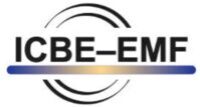Expert Call for the World Health Organization to Pause Monograph on Wireless Radiation Health Risk Until Independent Review
Dr. Joel Moskowitz, Director of the Center for Family and Community Health at UC Berkeley, has called for the World Health Organization (WHO) to pause the publication of its forthcoming monograph on cell phone and wireless radiofrequency (RF) radiation health effects. He urges this action pending a comprehensive critical review by independent, un-conflicted experts.
This post is reposted from the website of Dr. Joel Moskowitz, Director Center for Family and Community Health School of Public Health University of California, Berkeley and ICBE-EMF Commissioner found here.
The WHO Monograph on Radio Frequency Radiation Health Effects should be put on hold pending a comprehensive critical review.
The World Health Organization (WHO) commissioned twelve systematic reviews (SRs) in preparation for a new WHO monograph on the health effects of radio frequency electromagnetic fields (RF-EMF). The WHO last published a monograph on this potential health hazard 32 years ago in 1993. Thus, the new monograph will be used to inform global public, occupational, and environmental health RF-EMF standards for several decades.
Although I don’t have information about the quality of peer review for the other SRs, to date several SRs have been criticized in peer-reviewed journal articles:
- Di Ciaula A, Petronio MG, Bersani F, Belpoggi F. Exposure to radiofrequency electromagnetic fields and risk of cancer: Epidemiology is not enough! Environment International, 2025. doi: 10.1016/j.envint.2025.109275. https://www.sciencedirect.com/
science/article/pii/ S0160412025000261 - Frank JW, Melnick RL, Moskowitz JM. (2024). A critical appraisal of the WHO 2024 systematic review of the effects of RF-EMF exposure on tinnitus, migraine/headache, and non-specific symptoms. Rev. Environ. Health. doi: 10.1515/reveh-2024-0069. https://www.degruyterbrill.
com/document/doi/10.1515/ reveh-2024-0069/html - Frank JW, Moskowitz JM, Melnick RL, Hardell L, Philips A, Héroux P, Kelley E. The Systematic Review on RF-EMF Exposure and Cancer by Karipidis et al. (2024) has Serious Flaws that Undermine the Validity of the Study’s Conclusions. Environ Int. 2025 Jan;195:109200. doi: 10.1016/j.envint.2024.109200. https://www.sciencedirect.com/
science/article/pii/ S0160412024007876 - Hardell L, Nilsson M. A Critical Analysis of the World Health Organization (WHO) Systematic Review 2024 on Radiofrequency Radiation Exposure and Cancer Risks. Journal of Cancer Science and Clinical Therapeutics. 9 (2025): 09-26. doi: 10.26502/jcsct.5079261. https://www.fortunejournals.
com/articles/a-critical- analysis-of-the-world-health- organization-who-systematic- review-2024-on-radiofrequency- radiation-exposure-and-cancer- ri.html - Lin JC. World Health Organization’s EMF Project’s Systemic Reviews on the Association Between RF Exposure and Health Effects Encounter Challenges [Health Matters]. IEEE Microwave Magazine, vol. 26, no. 1, pp. 13-15, Jan. 2025, doi: 10.1109/MMM.2024.3476748. https://ieeexplore.ieee.org/
document/10795296 - Nordhagen EK, Flydal E. WHO to build neglect of RF-EMF exposure hazards on flawed EHC reviews? Case study demonstrates how “no hazards” conclusion is drawn from data showing hazards. Rev Environ Health. 2024 Jul 10. doi: 10.1515/reveh-2024-0089. https://www.degruyterbrill.
com/document/doi/10.1515/ reveh-2024-0089/html
-
2024, Bosch-Capblanch X, Esu E, Moses Oringanje C, Dongus S, Jalilian H, Eyers J, Auer C, Meremikwu M, Röösli M. Corrigendum to “The effects of radiofrequency electromagnetic fields exposure on human self-reported symptoms: A systematic review of human experimental studies” [Environ. Int. 187 (2024) 108612] [erratum] Environ Int 190: 108892 https://www.sciencedirect.com/
science/article/pii/ S0160412024004781 -
2025, Cordelli E, Ardoino L, Benassi B, Consales C, Eleuteri P, Marino C, Sciortino M, Villani P, Brinkworth MH, Chen G, McNamee JP, Wood AW, Belackova L, Verbeek J, Pacchierotti F. Corrigendum to “Effects of Radiofrequency Electromagnetic Field (RF-EMF) exposure on pregnancy and birth outcomes: A systematic review of experimental studies on non-human mammals” [Environ. Inter. 180 (2023) 108178] [erratum] Environ Int 196: 109273 https://www.sciencedirect.com/
science/article/pii/ S0160412025000248 - 2025, Cordelli E, Ardoino L, Benassi B, Consales C, Eleuteri P, Marino C, Sciortino M, Villani P, Brinkworth MH, Chen G, McNamee JP, Wood AW, Belackova L, Verbeek J, Pacchierotti F. Corrigendum to “Effects of radiofrequency electromagnetic field (RF-EMF) exposure on male fertility: A systematic review of experimental studies on non-human mammals and human sperm in vitro” [Environ. Int. 185 (2024) 108509], Environment International, 2025, doi: 10.1016/j.envint.2025.109449. https://www.sciencedirect.com/
science/article/pii/ S0160412025002004
This post is reposted from the website of Dr. Joel Moskowitz, Director Center for Family and Community Health School of Public Health University of California, Berkeley and ICBE-EMF Commissioner found here.
